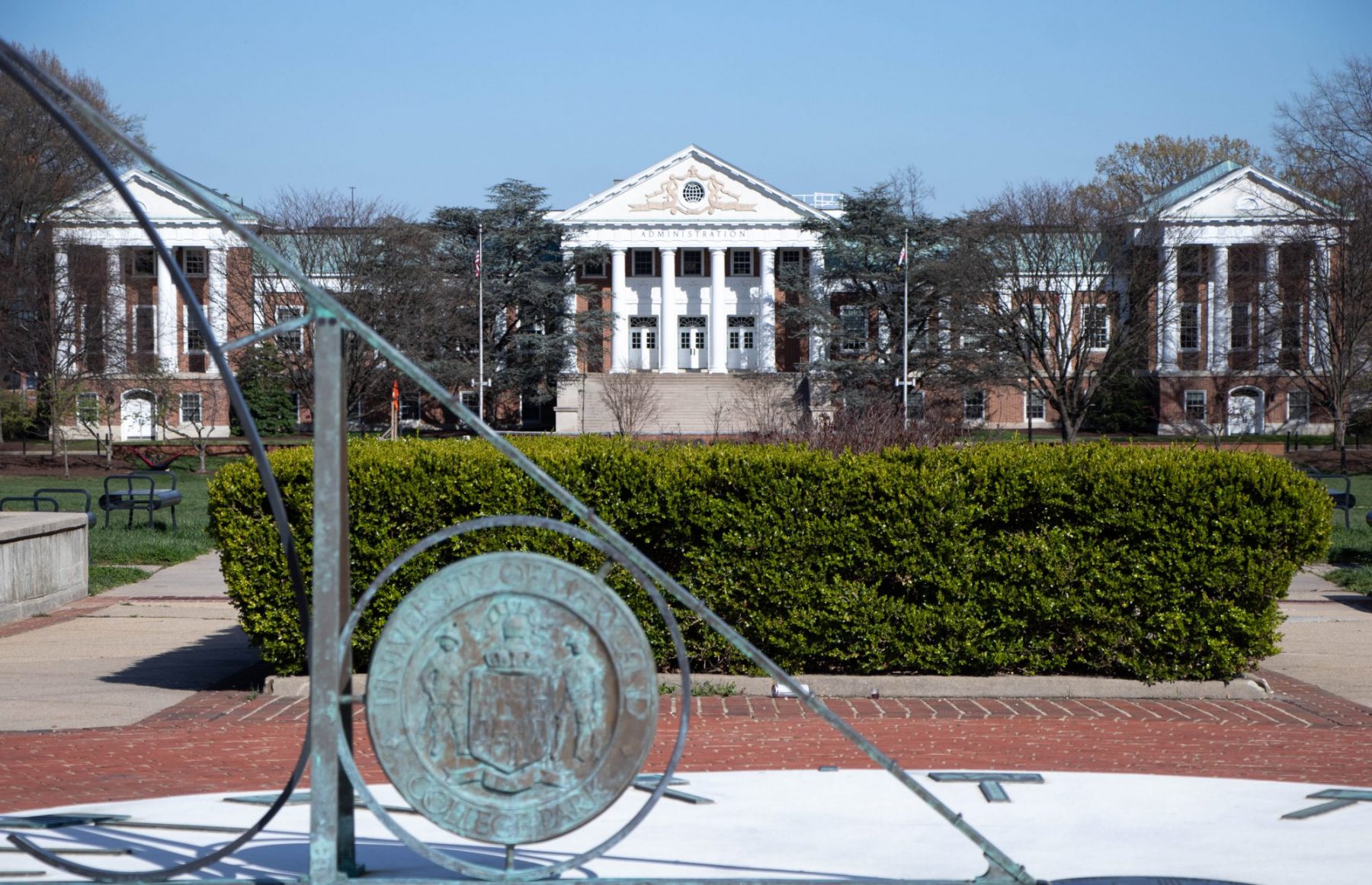By Christine Zhu and Clara Longo de Freitas
Staff writers
When Hunter Marsh heard the University of Maryland would not be reinstating the pass/fail grading policy, it reminded him of a meme.
He said it felt like, after thousands of students had asked it to implement the policy, the university had simply said no and followed it up with a shallow and slightly mocking heart emoji: “No 💖.”
On Monday, the university announced in a campuswide email it would be extending the deadline to withdraw from a course until Nov. 30, in lieu of implementing a pass/fail grading option similar to the one offered last semester. Students were quick to voice their displeasure with this decision, which came after a petition calling for a pass/fail option to be offered this semester amassed more than 7,500 signatures.
The college experience isn’t a level playing field, Marsh said. Not everyone has access to reliable internet or technology. And last week, the United States reached a record-high number of COVID-19 cases in a day, currently totaling over 11 million cases. These are simply unprecedented times, the senior government and politics major said.
“We simply cannot equate the semester to any other semester,” he said. “We can’t base this off of fall 2018. It’s fall 2020.”
The reasoning the university offered for its decision was that a pass/fail system would have negative consequences for students’ academic careers and post-graduation plans. Students’ transcripts might not accurately reflect their mastery of the material, or they may not be prepared for subsequent higher-level coursework, Provost Mary Ann Rankin wrote in the email. Some graduate schools and employers might frown upon pass/fail, she wrote.
But Jacob James, a junior computer science major, said that although he plans to attend graduate school, he would prefer to have a pass/fail grading option this semester and is not worried about how officials at schools he could apply to would perceive this marking on his transcript.
“I’m sure they would take into consideration that these are extremely strange times,” he said.
[Students petition UMD to return to pass/fail grading for hybrid semester]
For Emily Berry, the Residence Hall Association’s president, the university’s response was disappointing. It felt as if the university did not think students were intelligent enough to determine how taking a course as pass/fail would affect their future, Berry said.
The withdrawal policy is also not ideal, she said, since students at this point have already worked on their classes for almost the entire semester.
“I’ve had so many conversations with students who had situations outside of their control this semester, and their grades are going to suffer for it,” Berry said. “Even though that is not representative of how they would perform in a normal academic year.”
Earlier this month, Berry authored an RHA resolution urging the administration to implement a pass/fail grading system this semester. It passed unanimously.
Some students can’t afford to drop a class, junior aerospace engineering major Colby Merrill said. Though Merrill said they personally wouldn’t need to use the pass/fail option, they’ve seen how stressed others in their major are. Because of the aerospace engineering program’s design, they said, losing credit on a class often means students would need an entire year more to complete the degree.
“Extending the ‘W’ deadline is just a performative action that they have to go through to say, ‘Hey, we do actually care about you,’ without actually doing anything to signify that,” Merrill said.
Ali Hassannia, another aerospace engineering major, was similarly frustrated by the university’s announcement. Now, students are in a position where they have to debate “whether to throw away 4/5 [of] a semester worth of hard work, late nights, and mental distress, and then retake the class next semester, or stay in the class with a poor grade,” he wrote in a message.
“It is not a good look for an institution that selfishly prides itself on taking care of its students,” the freshman continued. “All those mental health emails seem like real scams now.”
Plus, he pointed out that underclassmen like himself would especially benefit from a pass/fail policy. The transition from high school to college is difficult enough, he noted, even without a pandemic.
[Students petition UMD to lower tuition and fees, citing online classes]
Freshman Rafa Mondal observed that the university’s reasoning behind the decision seemed to revolve around upperclassmen. For example, the school noted in its email Monday that using such a policy could negatively affect students after graduation.
“But here’s the thing, I’m not anywhere close to graduating,” Mondal, a computer science major, said. “I feel like freshmen should have the opportunity to do pass/fail … especially because it’s our first semester.”
On Monday, Rankin also urged faculty members at this university to show “empathy and flexibility” to students, echoing a message she had conveyed just before the start of the fall semester.
In a Monday email to faculty, the provost noted students have been struggling not only with the pandemic, but also with stress caused by the election and cases of racial injustice.
“If there are ways to reduce the pressure on students in your courses, while still achieving the essential learning objectives, I urge you to do so,” she wrote.
She also encouraged professors to consider offering an “incomplete” for students who struggle at the end of the semester.
But Marsh said the administration shouldn’t be able to dictate what is right for students when more than 7,000 of them had signed the petition for the pass/fail policy.
Berry said she is already working on a plan to continue the conversation. Other universities have implemented a pass/fail policy for this semester, she said, and many have done so because students pushed for it.
“I’m just wondering why that’s not enough for the University of Maryland, that so many of their students got involved and advocated for themselves on this issue,” she said.



